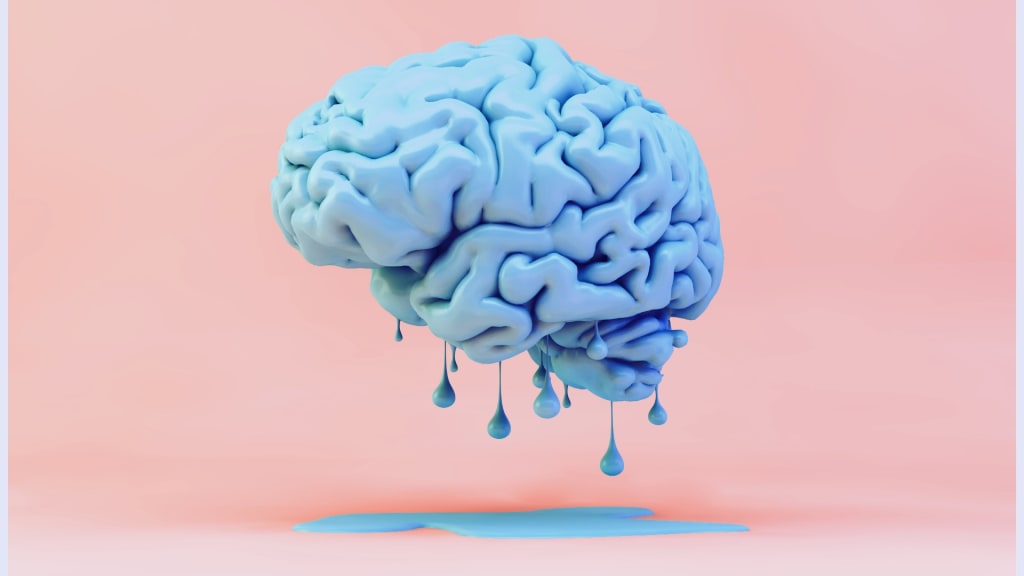Your Brain on Plants
What really happens internally when you eat less meat

Food is literally fuel for the body brain. It's the data input to your high functioning processor that then creates a different output. It's the gas in the tank - you can't put low-grade gas in a high-grade car, can you? Well, you can, but it doesn't perform optimally.
Bad data in = bad data out
So what's good data?
Plant based diets have gained popularity in recent years thanks to continually published research findings of how going plant-based can improve your mood, brain function, thought patterns, and cellular and metabolic health.
Some food for thought:
Eating Animals → Higher Arachidonic Acid (AA)
High intakes of AA promote changes in the brain that can disturb a person's mood.
Omnivorous diets, which include food derived from both plants and animals, are high in arachidonic acid (AA), and research shows that high intakes of AA promote changes in the brain that can disturb a person's mood.
Omnivores who eat fish regularly increase their intakes of eicosapentaenoic acid (EPA) and docosahexaenoic acid (DHA), which are fats that oppose the negative mood effects of AA.
However, a recent cross-sectional study found that vegetarians reported a significantly better mood than their omnivorous counterparts.
So why is this important? The researchers concluded that consuming vegan or vegetarian based diets can actually help reduce feelings of anxiety, stress, and depression.
More Plants → Less Monoamine Oxidase (MAO)
Plant-based foods contain natural MAO inhibitors, and inhibition of monoamine oxidase is one way to treat depression and anxiety.
Additional studies further substantiate the link between good mental health and eating a plant based diet. Researchers found that depression can be linked to inflammation in the brain and chemical imbalances of neurotransmitters.
The study showed that many people suffering from depression have elevated levels of an enzyme called monoamine oxidase (MAO). MAO breaks down serotonin, dopamine, and norepinephrine, neurotransmitters which help regulate mood.
The phytochemical quercetin, found only in plant-based foods, acts as an MAO inhibitor, and inhibition of monoamine oxidase is one way to treat depression and anxiety.
More Plants → More Empathy
Another study reported that those on a vegan or vegetarian diet showed more brain activity related to empathy, self-control, and self body awareness, and the researchers suggested the results could be attributed to varying attitudes towards life.
More Plants → Higher Microorganism Diversity of Microbiota
Plant based diets have also been found to improve a person's overall health and wellness through the gut microbiota.
Plant-powered diets appear to benefit health because they promote a more diverse and stable microbial system. A diverse microbiota is linked to a healthy BMI and arterial compliance. Additionally, gut microbiota are essential to maintain healthy vitamin levels in the body.
Researchers also found that low diversity in the gut is associated with diabetes and obesity.
So how does this affect your brain? Well, evidence is growing to support the notion that intestinal microbiota are linked to mood, behavior, and cognition. One study shows how microbes interact with gut cells that produce neuroactive molecules and peptides, which in turn interact with the vagus nerve and sends signals to the brain.
It's important to recognize that there is a relationship between plant based diets and the brain and vegan and vegetarian diets and the gut-brain axis. More long-term studies in nutrition science, neuroscience, endocrinology, and psychology are necessary to better understand the full benefits of plant based diets. But for now, eating for the brain means eating lots of nutrient rich foods laden with antioxidants, phytochemicals, and foods that help support a diverse microbiota.






Comments
There are no comments for this story
Be the first to respond and start the conversation.